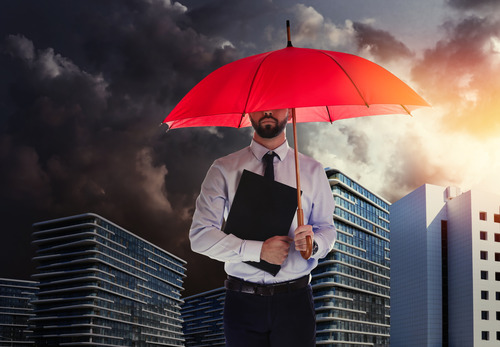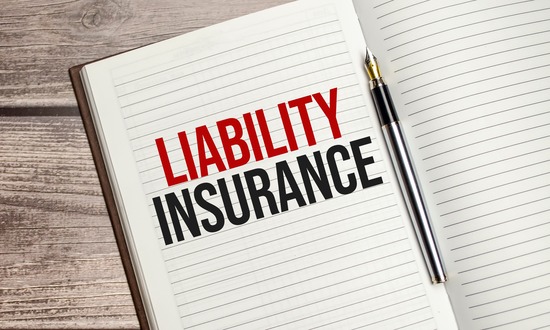In the world of contracting, where each job is unique and comes with its own set of risks, insurance isn’t just an afterthought—it’s a necessity. From fire sprinkler contractors to excavation professionals, each trade requires specialized coverage. This guide will walk you through the importance of specific insurances tailored for various contractors.
1. Fire Sprinkler Contractor
As a fire sprinkler contractor, your job is of paramount importance in ensuring the safety of buildings and their occupants. However, mishaps can occur. Imagine a situation where a faulty installation results in extensive water damage to a building, or worse, fails to function in the event of a fire. With the right fire sprinkler contractor insurance, these risks are mitigated, ensuring you are protected against potential claims.
State Requirements: Most states mandate that fire sprinkler contractors have both liability and workers’ compensation insurance. This covers both potential damages from errors in installation and any injuries to workers on the job.
2. Drain Cleaners
A drain cleaner’s role may seem straightforward, but the consequences of mistakes can be significant. Should a mistake lead to flooding or property damage, drain cleaner insurance ensures that your business isn’t sunk by the costs of repair and legal fees.
Claim Scenario: After cleaning a drain, a blockage was not completely removed, leading to a major flood in a commercial property. The claim resulting from the damage amounted to tens of thousands of dollars.
State Requirements: Most states require drain cleaners to have general liability insurance to cover potential property damage or injury claims.
3. Hood Cleaners
Hood cleaners play a vital role in maintaining commercial kitchens. An incomplete or shoddy job can result in fire hazards. With hood cleaner insurance, any potential claims arising from damages or injuries can be addressed.
Claim Scenario: A hood cleaner failed to adequately clean the grease from a commercial kitchen hood. A fire ensued, causing significant damage. The establishment filed a claim against the hood cleaning company for damages.
State Requirements: Hood cleaners typically need general liability insurance, with many states also requiring workers’ compensation for employees.
4. Demolition Contractors
The nature of demolition means that accidents can happen. From accidental damage to neighboring properties to on-site injuries, demolition contractor insurance is crucial for protection.
Claim Scenario: While demolishing an old building, debris inadvertently damaged an adjacent property’s exterior and windows. The neighboring property owner filed a claim for repairs.
State Requirements: Demolition contractors generally require extensive coverage, including general liability, workers’ compensation, and often property damage insurance.
5. Alarm Installers
Installing alarms is a responsibility that comes with its own set of risks. A faulty installation can lead to property loss or even personal danger. Alarm installer insurance provides the necessary coverage against potential claims.
Claim Scenario: After an alarm system was deemed operational, it failed to alert homeowners of a break-in. Valuables were stolen, and the homeowners filed a claim against the installation company.
State Requirements: Alarm installers typically need both general liability and professional liability insurance to cover potential damages or malfunctions.
6. Excavation Contractors
Working with heavy machinery and altering landscapes, excavation contractors face numerous potential hazards. From damaging underground utilities to site accidents, excavation contractor insurance is a must-have.
Claim Scenario: An excavation contractor unknowingly damaged a buried gas line, leading to a costly repair and hazard situation. The utility company filed a claim against the contractor for damages.
State Requirements: Along with general liability insurance, excavation contractors often require additional endorsements for potential damage to underground utilities.
7. Pool Installers
Installing pools is a significant project that comes with inherent risks. From potential property damage to accidents during installation, having pool installer insurance is crucial.
Claim Scenario: During the installation of an in-ground pool, the equipment accidentally damaged the homeowner’s deck and landscaping. A claim was filed for repairs and restorations.
State Requirements: Pool installers typically need general liability and workers’ compensation insurance, with some states also requiring additional endorsements based on the scale and type of installations.
The Importance of Liability Insurance for Contractors
In the dynamic and often unpredictable realm of contracting, liability insurance stands as a contractor’s first line of defense against unforeseen adversities. Whether you’re laying bricks, installing electrical systems, or renovating interiors, the risk of causing property damage or personal injury is always present. Liability insurance not only protects contractors from potentially crippling financial burdens resulting from lawsuits but also reinforces their credibility in the eyes of clients. When clients see that a contractor is adequately insured, it instills a sense of trust and assurance, knowing that they are working with a professional who values responsibility and accountability. In essence, liability insurance doesn’t just shield contractors from potential legal liabilities; it also bolsters their reputation in the market, making it an indispensable tool in the contractor’s arsenal.
Insurance is an essential aspect of running a contracting business. Each trade has its own unique risks, and it’s crucial to ensure you have the appropriate coverage for your line of work. Always consult with an insurance expert to tailor your coverage to your specific needs and state requirements.












